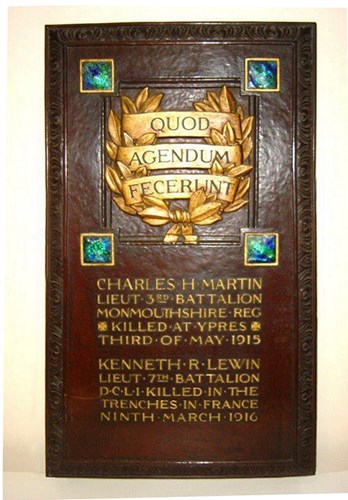We are grateful to Prof. Roger Plumb for his transcription of this correspondence and for providing it to the HAW Project.
The original letters are in the Russell Archive, held by the Rothamsted Library.
1913-14 Combined
1915 Combined
1916 Combined
1917 Combined
1918 Combined
1919 Combined
1920-21 Combined
Copyright remains with the owner and/or Herts At War - please obtain permission before use.
Rothamsted Experimental Station – Correspondence 1914-21
As you would expect, much of the communication is mundane, e.g. the new laboratory being built, the unfinished kitchen etc. Some of it is related internal correspondence and is perhaps most interesting as an example of how normal life continued during the war. Other correspondence, however, is war related, e.g. does one of the workers have to register with the authorities? (just prior to the war), news of the appeals to the Military Service Tribunal – to keep key men working and not serving. It provides some insights to whether jobs were kept open for the serving men and whether they continued to receive some pay. It shows how general and business news was conveyed to and from serving men. Later, inevitably, correspondence turns to the commemoration of the two men, Charles Martin and Kenneth Lewin, who died.
Brief background to Rothamsted Experimental Station:
Rothamsted Experimental Station, is the oldest agricultural research station in the world and grew from the experiments started by John Bennet Lawes who was the squire of Rothamsted Manor (he was born there in 1814). He went to Eton and then on to Brasenose College, Oxford, but left without taking a degree.
In 1834 he took on the management of the Rothamsted home farm. This was a time when the country was still suffering from the poverty brought about by the Napoleonic Wars, and a time when great efforts were being made by many people to improve the land and methods of cultivation. John was one of these pioneers.
In 1842 John patented the manufacture of superphosphate, and in the following year set up a factory at Deptford to produce and which became highly successful.
In 1843 John Bennet Lawes began collaboration with Dr J H Gilbert and it is accepted that it was after this that the Experimental Station was founded. The collaboration lasted 57 years,
Much more information is available via the Harpenden History website.


